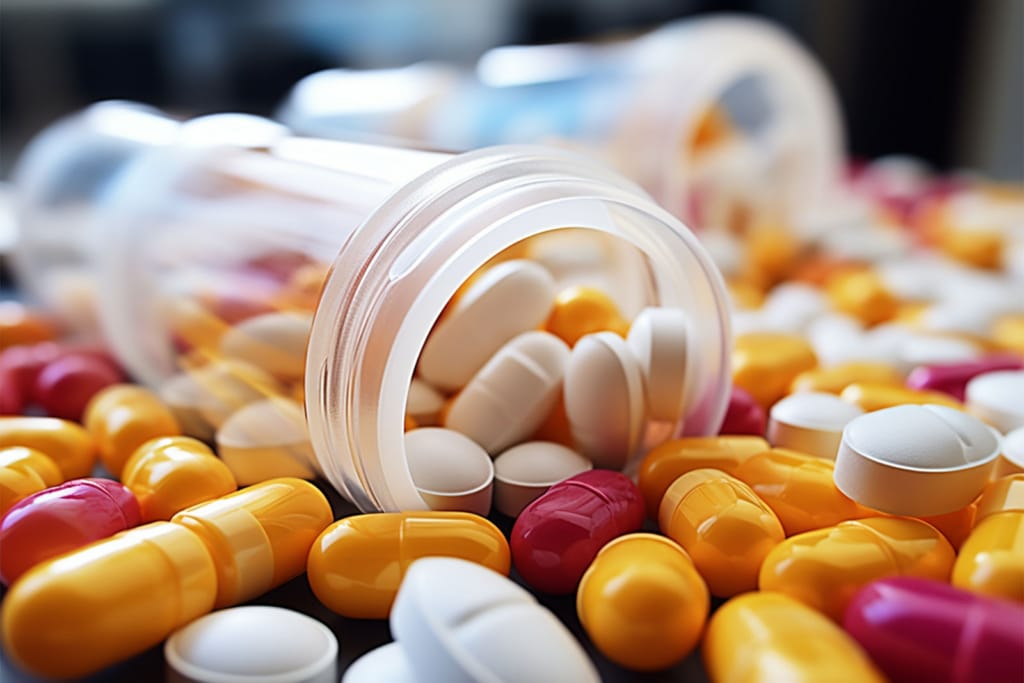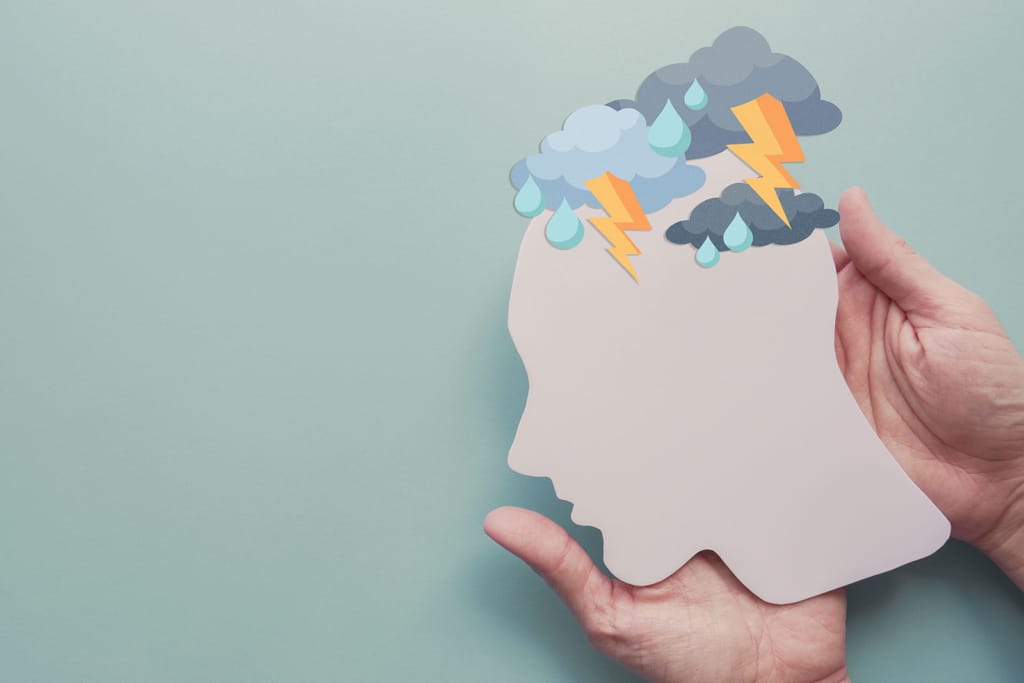Stimulants can provide a temporary burst of energy and focus, but their allure can quickly spiral into a dangerous addiction.
If you or your loved ones are struggling with stimulant abuse in New Jersey, this guide is here to help you.
In this article, you’ll find everything you need to know about stimulant addiction, including how it works, its causes, signs and symptoms, and the different methods to put an end to its devastating effects.

Table of Contents
How Do Stimulants Work?
Stimulants are a diverse class of drugs that primarily impact the central nervous system by revving up its activity.
The potency of drugs in this category can vary significantly, ranging from simple caffeine to Cocaine and methamphetamine.
Since stimulants can stimulate the brain to increase focus and alertness, some of them are medically used to treat symptoms of Attention Deficit Hyperactivity Disorder (ADHD) and sleep disorders like narcolepsy.
However, one thing that members of this group have in common is that they’re all highly addictive, which is why many of them are highly regulated under the Controlled Substance Act.
Why Are Stimulants Highly Addictive?
The addictive nature of stimulants, particularly cocaine and amphetamines, comes from their ability to manipulate the brain’s reward system.
Most of these drugs stimulate the brain to produce various neurotransmitters associated with alertness and pleasure. These mainly include noradrenaline and dopamine.
The sudden elevation in the level of these brain chemicals creates a powerful euphoric feeling that reinforces the brain to repeat the experience through continuous dosage.
However, with repeated use, the body develops tolerance, so the current dose becomes ineffective, pushing the need for an increasingly higher dose to achieve the same initial effects.
This pattern rapidly leads to dependence, which is when the body simply needs the stimulant to function properly, even with a reduced sense of euphoria.
The final stage of this escalating pattern is addiction, which is when the body starts experiencing unpleasant withdrawal symptoms as soon as the effects of the stimulant wear off.
The problem with stimulant addiction is that it’s not because it develops extremely quickly, but also because it can very easily lead to a fatal overdose.
Additionally, in the long run, it causes serious chronic health problems that may even last long after recovery.
How Common Is Stimulant Addiction in New Jersey?
Because of the addictiveness of stimulants and the high potential for abuse, stimulant addiction is considered a public health crisis all over the nation, including New Jersey.
According to the 2022 New Jersey Substance Abuse Overview, stimulants are among the most commonly abused drugs.
In fact, the report shows that cocaine alone (one of the most powerful stimulants) accounts for over 6% of all substance abuse admissions in 2022.
The report also shows that stimulant addiction is on the rise, as the report from the year before showed that cocaine accounted for 5% of admissions.
Besides hospitalization, stimulant overdose is one of the leading causes of substance abuse-related deaths with a remarkably high mortality rate, both in New Jersey and nationwide.
Causes of Stimulant Addiction
Understanding the factors that may cause stimulant addiction is the key to identifying it early on and preventing its development into a more serious case.
While these factors can vary significantly from one person to another, there are some general factors and triggers that heavily contribute to stimulant addiction. In this section, we’ll take a closer look at them.
Misusing Prescription
As previously established, some stimulants are used to treat conditions like ADHD under medical prescription.
However, some patients take higher doses than prescribed or continue using the drug against the doctor’s advice, which leads to dependence and addiction.
Early Exposure to Stimulants
Experimentation with stimulants at a young age, especially during crucial brain development periods, can increase the risk of addiction later in life.
This is confirmed by scientific research that shows that the developing brain is more susceptible to the effects of these drugs, making them more addictive.
Suffering from Underlying Mental Health Conditions
Individuals with pre-existing mental health conditions, such as anxiety, depression, or even ADHD, may try to self-medicate themselves with stimulants to cope with their symptoms.
This can lead to a dangerous cycle of dependence and even worsen these underlying conditions in the long run.
Stressful Environments
One of the most powerful triggers to abuse stimulants is chronic stress. People may resort to using stimulants as a way to seek temporary relief from their daily stressors or to cope with overwhelming situations at work or school.
However, the high addictiveness of stimulants ends up creating a reliance on the drug since it doesn’t address the root cause of stress.
History of Trauma, Abuse, or Neglect
Traumatic experiences can leave individuals vulnerable to addiction, especially among individuals with a genetically high predisposition to stimulant addiction.
This is because some people might use it to numb emotional pain or escape difficult memories, although it still doesn’t address the root cause.
Identifying Stimulant Addiction
Stimulant addiction manifests itself through various signs and symptoms that vary depending on the severity of the addiction. Here’s a quick look at them during various stages of addiction:
In the Early Stages
- Increased energy and alertness, which seems a positive sign at first but develop quickly into restlessness and insomnia
- Talkativeness while jumping from topic to topic with overexcitement
- Hyperactivity and irritability
- Dilated pupils
- Increased confidence and impulsiveness, demonstrated in attempting risky actions
- Loss of appetite
- Runny nose
- Excessive sweating
In the Advanced Stages
- Malnutrition and weight loss
- Neglecting hobbies and interests
- Withdrawal from society
- Aggression
- Noticeable fatigue due to lack of sleep
- Running into financial, legal, and social problems
- Heart problems, such as hypertension
- Anxiety and psychosis
- Seizures (in severe cases)
What Are the Treatment Options for Stimulant Addiction?
Despite being a challenging form of addiction, treating stimulant addiction is not impossible. Here’s a brief overview of the different methods used to treat it:
Medical Detoxification
The first step in treating stimulant addiction is getting rid of the drugs from the body, which is known as medical detoxification or simply as “detox”.
For serious types of substance use disorders like stimulant addiction, this treatment is usually carried out in a rehabilitation facility.
Medical supervision here is essential to ensure the patient’s safety, as the withdrawal symptoms can be severe.
Doctors will usually taper the dose (reduce it gradually) and prescribe medications to alleviate the discomfort associated with addiction.
In mild cases, patients might be allowed to return home daily after receiving medical care, which is known as outpatient therapy.
Individual Therapy
Individual therapy represents the core component of stimulant addiction treatment because it’s all about addressing the root underlying causes of addiction.
The therapist works one-on-one with individuals suffering from addiction to help them identify the causes, and develop alternative and healthier coping mechanisms to avoid relapse.
The most popular form of individual therapy used here is behavioral therapy, which is represented in popular techniques, such as:
- Cognitive Behavioral Therapy (CBT): An evidence-based method that is highly effective at teaching patients to overcome triggers associated with relapse by identifying and changing negative thought patterns.
- Dialectical Behavior Therapy (DBT): A subtype of CBT that focuses on impulse control and emotional regulation to find new ways to cope with stress without abusing drugs.
Besides individual sessions, therapists might suggest group sessions for families to offer support for relationships that have been affected by addiction.
Group Therapy
Group therapy provides a safe space for individuals to feel accepted and share their experiences with others who suffer from stimulant addiction.
This method has also shown its effectiveness in treating stimulant addiction by creating a supportive community to overcome the sense of isolation and stigmatization associated with addiction.
Sober Living Homes
Also known as “transitional homes”, these are structured living environments that offer a supportive and drug-free residence to live during recovery.
These homes are suitable for those who spent a long time recovering from stimulant addiction and can be a healthy foundation for rebuilding a healthy life after full recovery.
Supportive Therapy
On its own, supportive therapy may not be enough to offer sustainable treatment for stimulant addiction.
However, it can be a valuable addition to the personalized treatment plan to encourage the individual’s well-being and health, which can boost the effects of primary treatment methods.
Supportive therapy includes a wide range of treatment methods, such as holistic therapy represented in yoga, acupuncture, and massage.
Additionally, healthcare professionals might recommend exercising and enhancing dietary habits to further nourish the body, which reflects on the mind as well.
Finding Reliable Treatment for Stimulant Addiction in New Jersey
Stimulant addiction is a challenging battle, but it’s important to remember that it is one you can actually win.
With the right support system and comprehensive treatment plan, lasting recovery is absolutely achievable. There are numerous resources available to help you on your journey towards healing.
If you live in New Jersey, you and your loved ones can find support groups, treatment centers, and hotlines to address stimulant addiction and offer help. Don’t hesitate to reach out to NJ Addiction Resources for further information.




